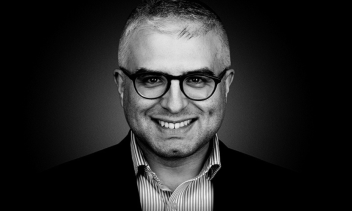I think you’d be hard-pressed to find a writer who didn’t describe a childhood love of—even an obsession with—reading. I’m no exception. The famous story of toddler me is that one time I escaped from my crib after bedtime and my parents later found me asleep on top of my bookcase. Though I didn’t read precociously early, à la Dahl’s Matilda Wormwood (a heroine of mine in youth), I am told that once I did learn to read, I was voracious. On more than one occasion, my ambition was much bigger than my actual ability: I distinctly remember crying, in the fourth grade, because I wanted to read Anne of Green Gables for a book report and the teacher gently suggested that one week might not be enough for an eight-year-old to read over 300 pages. Because I was fascinated with the Broadway show Les Misérables, I decided in elementary school that I should also read the novel, though in this case I failed not because someone dissuaded me, but because it was ultimately so far over my head—what did I really know of the Reign of Terror in the fourth grade?—I was forced to give up.
 Throughout adolescence and early adulthood, I was a flaky student and reader: When I disliked something assigned in school (Their Eyes Were Watching God, The Sun Also Rises—really, all Hemingway was too telegraphic and macho for my taste), I cast it aside quickly and mumbled my way through class, trying to sound like I’d done all my homework. But when I loved something (The Sound and the Fury, Crime and Punishment) you could do little to tear me away from it. As I made the rocky transition from student to independent adult, and I was able to choose my own assignments more readily, I was able to nurture an obsession with reading on my own terms. I gravitated towards challenging, provocative, often depressing texts: Eimear McBride’s A Girl Is a Half-Formed Thing, the enigmatic novels of David Markson, searingly painful memoirs by Lucy Grealy and Mary Karr, doorstop-sized biographies of irascible geniuses, like Tolstoy or Tennessee Williams. I once left my copy of David Foster Wallace’s behemoth Infinite Jest—I know it’s polarizing, let’s leave my defense of it for another day—home while on a two-week trip, and begged my roommate to FedEx it overnight so I wouldn’t have to wait an entire 14 days to find out what happened next. I traveled to Paris, alone, just to briefly live in a bookstore. Perhaps this was one of many ways into Judaism, when that plot twist finally came: I relate to little more, after all, than a heritage of graphomania. In fact, at one point in my twenties, I even developed a proto-Shabbos ritual, one I privately called a “reading day.” On a random Saturday or Sunday, I would sometimes stay in bed in the morning to read, after a few hours of which I’d inevitably doze off, the book splayed open at my side, and when I’d wake up, I’d find my place again and pick up where I left off, emerging only at night to find sustenance.
Throughout adolescence and early adulthood, I was a flaky student and reader: When I disliked something assigned in school (Their Eyes Were Watching God, The Sun Also Rises—really, all Hemingway was too telegraphic and macho for my taste), I cast it aside quickly and mumbled my way through class, trying to sound like I’d done all my homework. But when I loved something (The Sound and the Fury, Crime and Punishment) you could do little to tear me away from it. As I made the rocky transition from student to independent adult, and I was able to choose my own assignments more readily, I was able to nurture an obsession with reading on my own terms. I gravitated towards challenging, provocative, often depressing texts: Eimear McBride’s A Girl Is a Half-Formed Thing, the enigmatic novels of David Markson, searingly painful memoirs by Lucy Grealy and Mary Karr, doorstop-sized biographies of irascible geniuses, like Tolstoy or Tennessee Williams. I once left my copy of David Foster Wallace’s behemoth Infinite Jest—I know it’s polarizing, let’s leave my defense of it for another day—home while on a two-week trip, and begged my roommate to FedEx it overnight so I wouldn’t have to wait an entire 14 days to find out what happened next. I traveled to Paris, alone, just to briefly live in a bookstore. Perhaps this was one of many ways into Judaism, when that plot twist finally came: I relate to little more, after all, than a heritage of graphomania. In fact, at one point in my twenties, I even developed a proto-Shabbos ritual, one I privately called a “reading day.” On a random Saturday or Sunday, I would sometimes stay in bed in the morning to read, after a few hours of which I’d inevitably doze off, the book splayed open at my side, and when I’d wake up, I’d find my place again and pick up where I left off, emerging only at night to find sustenance.
On occasion, I’ll sneak off to get in just a few more pages, returning just before my family has the time to wonder what I could possibly be doing.
If I’m being honest, though, in recent years, my love of books had competed valiantly, but almost always failingly, against a particularly seductive mistress: television. This isn’t my first experience with that dark vixen; in fact, I’ve danced with her practically my whole life. I was raised in a devout TV family, one in which my parents fell asleep nearly every night to the soothing sounds of whatever-happened-to-be-on; to this day, when I go home to visit, I’ll occasionally walk into rooms with no people in them, but where a television hums and glows gently to an invisible audience. In my youth, my brothers and I had relatively free rein to watch whatever we wanted, whenever we wanted; certainly by the standards of the 21st century, marked as it has been by a consistent moral panic over “screen time,” we would be considered television zombies. I binged Nickelodeon and Disney Channel, spending entire weekends zonked out in front of the screen, my hand always partway submerged in a potato chip bag, with only the occasional wave of disgust washing through me. Despite how intoxicating television was, there were always impediments to getting completely sucked in: For a majority of my life, television meant commercial breaks, being subject to the whims of whatever entity chose the cable schedule, even, in later years, the lack of streaming options (remember getting Netflix selections, one at a time, in the mail? Just me?) or the unnecessary costs of accessing yet another platform.
Of course, this all seems quaint now. My children will never know the exquisite terror of rushing to the bathroom during an ad in order to make it back in time to see what happens at the end of this week’s Are You Afraid of the Dark?: For this I am both deeply saddened and grateful. These days we could, if we wanted, watch television all day, every day, sans intrusive ads, for relatively little money, and the truth is that sometimes I feel I do just that. I don’t love the amount of television I consume, but I’m conflicted about whether that’s really the moral failing people once thought it was. Perhaps you haven’t heard, but this is the golden age of TV, and I’m not about to miss out on gawking at an uber-rich media family trade bon mots or rooting for a ragtag group of existential slaves going up against their dystopian employer. Besides, some of my favorite thinkers were television and movie lovers (Foster Wallace, for one, and his great inspiration, Ludwig Wittgenstein), and I mostly watch when I’m doing household chores like cooking or cleaning—or should I be subjecting myself to drudgery in a puritanical silence?
But If I’m being honest—and it’s deeply embarrassing to say—I would have to admit that when jockeying for what I’m going to do on a random evening before I fall asleep, television often wins out over reading. Even after many articles told me that blue light is bad for my circadian rhythm, I just don’t feel like I can slow my mental engine down unless my senses are completely absorbed in something. For whatever reason, television is more meditative for me than books, which just makes too many synapses fire simultaneously. I am lulled by the combination of plot, visuals, and sounds in a way that I rarely am by literature. I can be as smug as I want about not having any social media—which I am, regularly—but when push comes to shove, I know I have an inner screen-slave sloth just as influential as any Instagram addict.
What Shabbos has done for me—one of the many, many things—is help recapture that younger self who could completely lose herself in a book. Devoid of distractions (save my two young children), I find myself luxuriating in a text for long stretches of time, concluding one book only to immediately pick up another, barreling through works in all manner of genres and forms. On occasion, I’ll sneak off to get in just a few more pages, returning just before my family has the time to wonder what I could possibly be doing. Perhaps perversely, one of the things I’ve found most interesting about adjusting to a shomer Shabbos life—which I did approximately nine years ago—was trying to determine for myself what kind of reading was appropriate given the boundaries around work. Deciding what is safe to dip into is like a little mental game: Obviously catching up on my Nach Yomi, a two-year OU initiative, is great (we’re about halfway through Tehillim now), and I generally feel like reading purely for relaxation, which is really the only way I ever read contemporary fiction, is acceptable, but what about books I might end up citing in my own work? And does it make a difference that in that work, I often cover topics related to religion and morality? And that for me, the line between reading for pleasure and reading for work is so paper thin (forgive the pun), because I actually enjoy the things I “have to” read?
 I used to find that the idea of eternal Shabbos in olam ha-ba made me quite anxious, actually: Wouldn’t you get, I don’t know, bored? Or, if you lean introvert, like I do, wouldn’t a never-ending succession of shul functions and meals make you tired and irritable and misanthropic eventually? But during a recent stretch of holidays and Shabboses, heavily pregnant and staying home from services more often than usual, I sat in bed next to a bunch of books stacked perilously atop one another, and zipped through a number of wildly different texts: a polemic against the sexual revolution by British writer Louise Perry, an extremely satisfying hatchet job masquerading as a biography of Freud, a meditation on solitude by the hermit Sara Maitland, an academic text on the relationship between Jewish theology and motherhood. My brain felt alive and yet in repose, like a vessel with so much delicious thought just being poured into it. I could get used to this, I thought. And sometimes, heretical though it may sound, it is in these moments—alone, rather than in community, at home instead of shul, doing nothing wrong but not engaging in a specific ritual—it is when I feel most attuned to Shabbos, and when I feel the strongest yearning for the days when it will stretch on forever.
I used to find that the idea of eternal Shabbos in olam ha-ba made me quite anxious, actually: Wouldn’t you get, I don’t know, bored? Or, if you lean introvert, like I do, wouldn’t a never-ending succession of shul functions and meals make you tired and irritable and misanthropic eventually? But during a recent stretch of holidays and Shabboses, heavily pregnant and staying home from services more often than usual, I sat in bed next to a bunch of books stacked perilously atop one another, and zipped through a number of wildly different texts: a polemic against the sexual revolution by British writer Louise Perry, an extremely satisfying hatchet job masquerading as a biography of Freud, a meditation on solitude by the hermit Sara Maitland, an academic text on the relationship between Jewish theology and motherhood. My brain felt alive and yet in repose, like a vessel with so much delicious thought just being poured into it. I could get used to this, I thought. And sometimes, heretical though it may sound, it is in these moments—alone, rather than in community, at home instead of shul, doing nothing wrong but not engaging in a specific ritual—it is when I feel most attuned to Shabbos, and when I feel the strongest yearning for the days when it will stretch on forever.
Kelsey Osgood is the author of How to Disappear Completely: On Modern Anorexia, which was chosen for the Barnes & Noble Discover Great New Writers program. Her work has appeared online or in print in Harper’s, The Atlantic, The New York Times, and Wired, among other outlets. She is currently at work on a book about religious conversion, which will be published by Viking Penguin.








